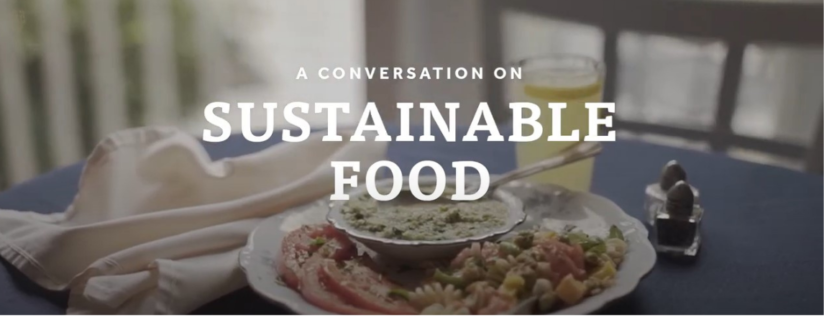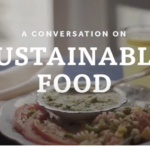
A Conversation On Sustainable Food
The relationship between food waste and processed foods, as well as the connectedness of biotechnology with food affordability and accessibility, were just two of the thought-provoking topics during the 2020 Best Food Facts TASTE Tour.
This year’s tour went virtual, with the influencers involved in one of three video conferences. The discussions were:
- Sustainable Food with conversations about food waste, processed foods, biotechnology and food affordability
- Sustainable Egg Farming, providing dialogue on hen housing and impacts on animal well-being, food affordability and natural resources
- Sustainable Crop Farming with a focus on crop practices and environmental stewardship
The tour was part of Optimizing Sustainability. Learn more about the project.
“Our main concern with our food supply right now is the amount of waste that we have. We are wasting so much of our food,” Dr. MacDonald said during the conversation on sustainable food. Processing is one of the most effective ways to make our food system more resilient, she said.
“That’s not sustainable when you think about a third of the food that we produce is just going out into the trash. We have to balance this idea that processing is a negative. It really isn’t. If you process foods, they stay fresher longer. You don’t have to throw them away after a couple of days,” Dr. McDonald said.
Julie Tran Deiley, who blogs at The Little Kitchen, said the tour changed her perception about processed food.
“I feel like she’s right. It is essential to sustainability because if we only used fresh foods, we have more food waste,” Deiley said. “So that really opened my eyes and it made me think, well okay it’s fine that I use the processed foods in my cooking and my everyday life.”
Dr. MacDonald also talked with the influencers about chemicals used in food and the impact they have on making food more sustainable.
“We have used the FDA as our governing body for assessing what ingredients can go into food and which ones and how much they can be used in what kinds of food systems,” she said.
Sometimes people pick out a specific ingredient on a food label and avoid it because it is a chemical.
“But everything in food is a chemical. Something like tocopherol or arachidonic acid might sound like a really horrible thing, but both of those are essential nutrients,” Dr. MacDonald said. “So you can’t just automatically assume that because it has a chemically sounding name it’s somehow bad for me. Those ingredients all have a function in there and they’re used in a way that has been tested and shown to be safe.”
The insights struck a chord with Rachael Yerkes of Eazy Peazy Mealz.
“One of the things that she mentioned is that everything in food is a chemical, so when we look at a package of processed food and we see chemicals, we sometimes get like leery of that food. But that’s not something to be afraid of, because everything in the food already is a chemical,” she said.
Other experts who were part of the discussion were Jennie Schmidt, a registered dietitian and farmer from Maryland, and Amanda Moder, a registered dietitian with Hy-Vee.
The Cookie Rookie Becky Hardin said what she learned on the TASTE tour gave her confidence with her food choice.
“The FDA does approve all of those ingredients that are on shelf-stable foods so I can trust those. I don’t have to go through with a fine-tooth comb every single item that I buy. If I trust the brand and I trust the ingredients that I’m seeing, that’s a great thing and I can feed our family longer. We can feel good about doing that,” she said.
The tour was part of Optimizing Sustainability, an initiative of The Center for Food Integrity that supports understand and prioritize factors to decisions that are most sustainable. In addition to the tour, Best Food Facts examined sustainability impacts and the topics of grass-fed and grain-fed beef, pesticides and GMOs. Learn more about the project and read all of the influencers articles.



























